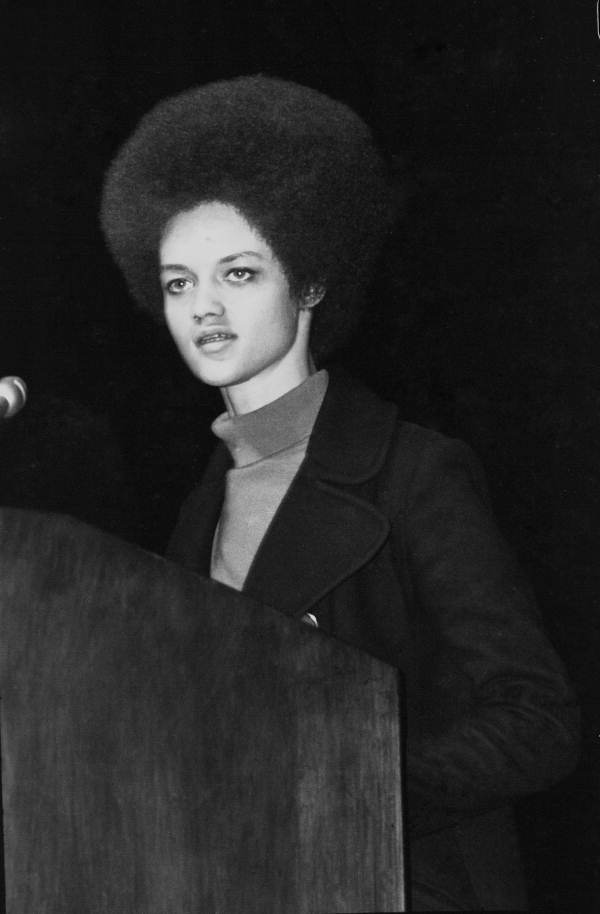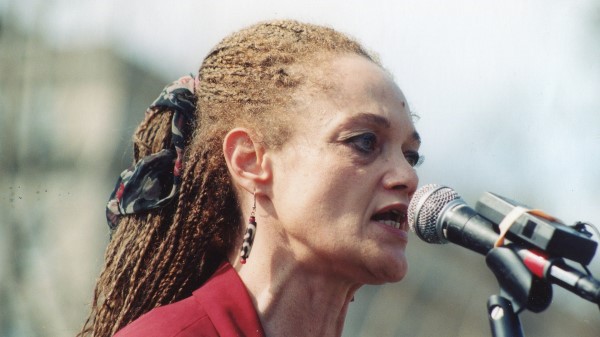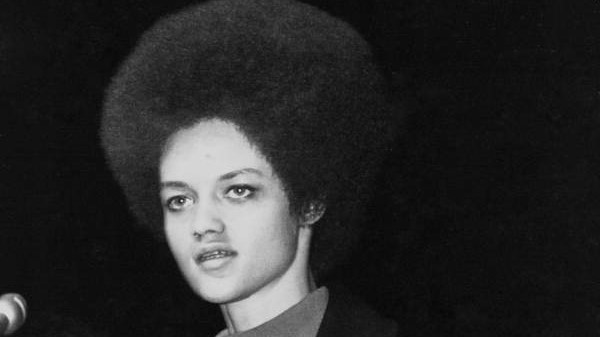In celebration of Black History Month, staff and students in the School of History have been writing blogs about key figures in black history. PhD student Madalyn Mann has written the following blog about Kathleen Cleaver.
Kathleen Cleaver was born in Dallas, Texas on 13 May 1945. During her childhood she often accompanied her parents in their travels abroad due to her father’s career in Foreign Service. In 1963 she moved to New York City and attended Barnard College until 1966 when she dropped out to work full-time with the Student Nonviolent Coordinating Committee (SNCC). Various members of the SNCC, including Cleaver, rode buses throughout the South in an attempt to uphold the Supreme Court ruling that interstate travel could not be segregated, focused heavily on voter registration campaigns, and spoke at various Civil Rights conventions. Many members of the SNCC faced violent acts from the Ku Klux Klan and law enforcement and many were jailed. By 1966 the Black Panther Party for Self-Defense (BPP) was founded in Oakland, California by Huey P. Newton and Bobby Seale.

In an interview with PBS, Cleaver explained that she was inspired by the Black Power Movement because it challenged all the preconceived notions of blacks not being able to determine their own destiny, and the Black Panther Party took that position of self-determination and articulated it in a local community structure, had a program of implementation that assists blacks in exercising control over education, housing, business and more. Admiring their efforts, Cleaver organized and presented at a student conference at Fisk University in 1967 where she met her husband, Eldridge Cleaver, the Minister of Information for the Black Panther Party. The two moved to San Francisco in late 1967 and Cleaver became the first woman in the Black Panther Party’s leadership group and worked as the Communications Secretary.
As the communications secretary she organized demonstrations, press conferences, and spoke on the radio and tv in order to spread the message of the Black Panther Party. Cleaver was proud to be a part of Black Panther Party because it was a part of a revolutionary struggle that was linked with other oppressed groups of people including Native Americans, Chicanos, Asians and women. The Cleavers were often targets for police intimidation and home raiding’s, and following a series of shootouts with police, her husband was accused of murder and the two lived in Algeria until 1975 when they were allowed to return.
When Cleaver returned she obtained a scholarship to Yale University and graduated with honors in history and then later earned a degree in law. She persevered through the oppression she faced and became a part of political and legal structures because she believes that by taking over these corporate interests’ black people will be able to govern their own lives. She has worked in the department of African American studies at Yale University and is currently a senior lecturer at the Emory University of Law. In 2001 she published a book titled, Liberation Imagination and the Black Panther Party: A New Look at the Black Panthers and Their Legacy.


